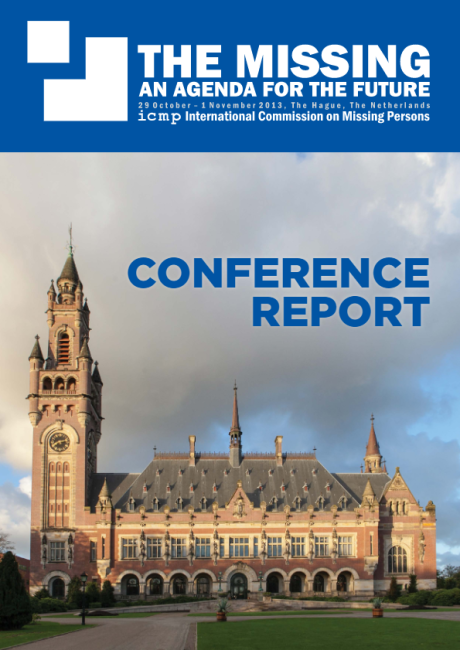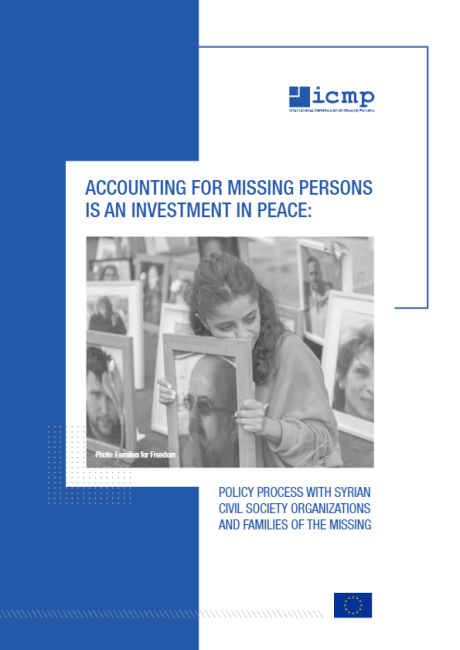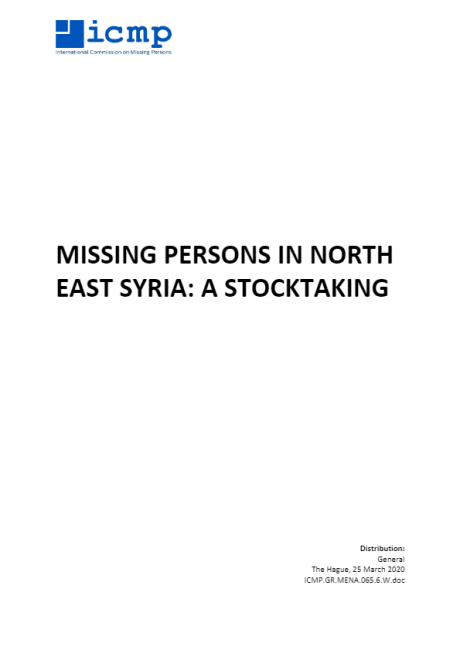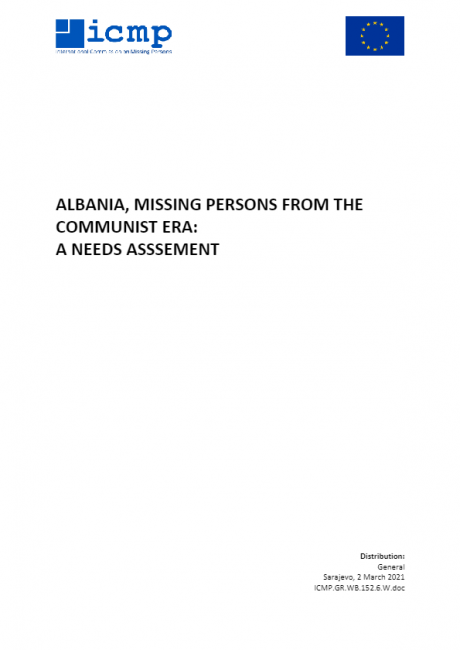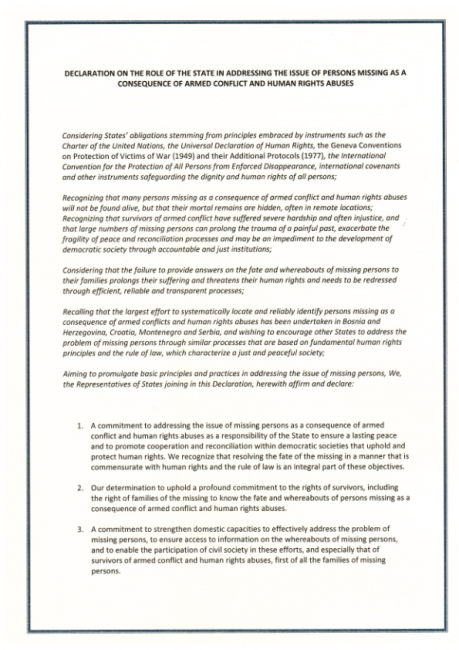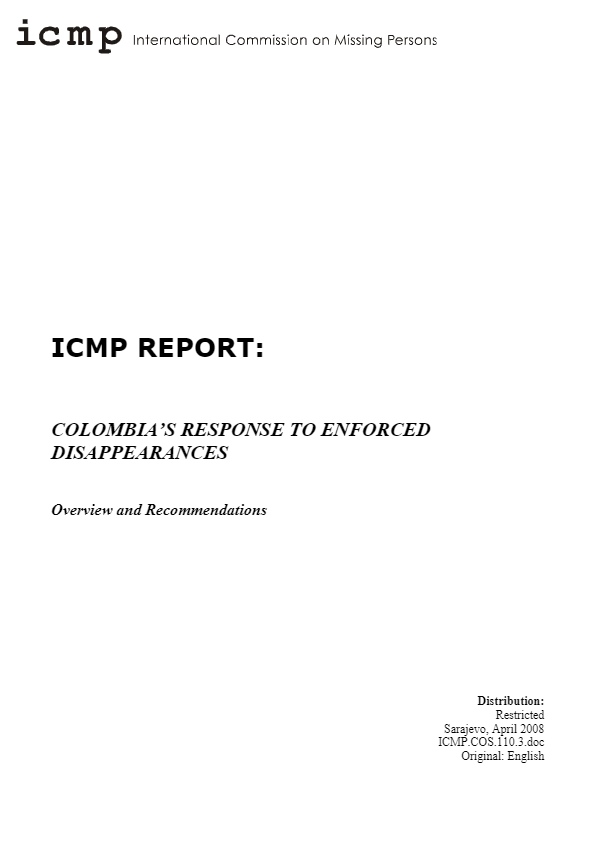
Colombia's response to enforced disappearances: Overview and recommendations
One of the many tragic consequences of Colombia’s internal armed conflict has been the enforced disappearance of many thousands of people. In cases of enforced disappearance, individuals are abducted, often tortured and killed, and are never heard from again. Frequently their mortal remains are concealed in clandestine graves. In Colombia, acts of enforced disappearance have been perpetrated by a variety of actors, including paramilitary and guerrilla forces and even state actors. Furthermore, the conflict is not over and acts of disappearances continue to occur. Colombia’s response to the problem of enforced disappearance is the subject of this report. In September 2007, following an initiative by the Spanish Agency for International Cooperation for Development (AECID) and the United Nations Development Program (UNDP), the Head of the Justice and Peace Unit of the State Prosecutor’s Office invited ICMP to conduct an assessment of the scope of the problem and the progress made to date by state institutions and others in addressing the issue. In addition, the Head of the Justice and Peace Unit requested recommendations from ICMP on the development of mechanisms to advance strategies to address the issue. ICMP conducted its assessment visits in December 2007 and March 2008. While in Colombia, ICMP experts met with numerous representatives of state institutions, NGOs, victims’ groups, foreign governments and international organizations in Bogota and Medellin. In conducting its assessment, ICMP reviewed the following: - Legislation applicable to the issue; - Institutions engaged in the process; - The technical capability of the state to locate, recover and identify the missing; - The inclusion of the families of the missing and other victims groups.


